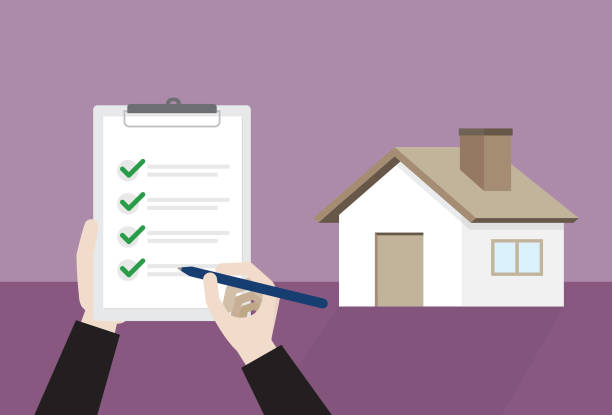Owning a home is the pinnacle of the Australian ideal. It is a sign of financial security and stability that has been achieved through hard work and saving. The process of purchasing a house may be both exciting and tiring, but with the appropriate buyer’s agency and a few helpful hints, you can own a beautiful — and reasonable — piece of the Australian dream.
73% of Australians owned their own house in 2007, at the peak of the real estate boom. By 2012, the figure had dropped to 62% [source: Gallup]. The housing crisis was sparked by bad mortgages. Many consumers willingly consented to adjustable interest rates in the hopes of selling or “flipping” their houses before the rates rose. Many novice homeowners have also been duped by unscrupulous lenders and buyers agencies into signing subprime loans with harsh conditions.
These figures aren’t meant to scare you as a home buyer; rather, they’re meant to persuade you of the importance of fully understanding your mortgage terms, having a good buyers agency, and selecting a home that you can honestly afford. Purchasing a house is an exciting and rewarding experience. It’s also one of the most important financial decisions you’ll ever make. If your heart tells you to buy the stately Victorian with the gabled windows, consult your head — and your budget — first.
We’ll walk you through the process of looking for the ideal house in this post. Do you really need a buyers agency, for example? Why do you need a bank to pre-approve you? How do you go about closing the deal? What’s more, how can you avoid acquiring a bad buyers agency? Let’s start with the money: receiving a mortgage pre-approval.
Getting a Mortgage Pre-Approved
Before hiring a buyers agency, the first and most important step in purchasing a house is determining how much you can afford to spend. Almost no one pays cash for a property. Instead, purchasers get a bank loan known as a mortgage. They repay the loan in set monthly installments depending on the loan’s total amount and interest rate. You should contact to a bank — or several banks — to acquire pre-approval for a mortgage before you start shopping for a property.
To assess how much you can afford to pay each month, the bank will ask you a number of financial inquiries. The price range of affordable residences will be determined by this figure. The bank is mostly interested in knowing how much money you make and how much debt you have (credit cards, student loans, car loans, etc.). While these figures provide a good overall picture of your finances, you should also review your budget.

A good budget includes all of your monthly income minus all of your monthly expenses: food, gas, debt payments, entertainment, etc. A complete and accurate budget is the best way to figure out exactly how much money is available every month for a mortgage payment. If that number is lower than the bank’s, play it safe and go with your calculations.
Notice that there’s a distinction between becoming pre-qualified and getting pre-approved. Pre-qualified implies that you’ve informed a lender of your income level and your debit and credit information, and the lender calculated what you can pay. Pre-approval, on the other hand, means that the lender has pulled your credit report, checked your debt-to-income ratio, and conducted a more thorough analysis of your financial situation. As a result, you’ll receive an official pre-approval letter that can help you seal the deal with a seller. Pre-approved offers are more likely to result in a completed transaction, which may persuade sellers to accept a lower price. You should have a buyers agency guide you through this process.
There are a few things to keep in mind throughout the pre-approval procedure. The monthly mortgage payment is merely a portion of the total cost of a home. In most circumstances, a down payment of at least 20% of the home’s purchase price is required to obtain the financing. (First-time buyers may benefit from programs that enable them to put down far less money.) To accomplish so, you’ll need a large chunk of money on hand. There are also a few more fees that aren’t included in the regular monthly payment calculation. Inquire with your lender about local property taxes, mortgage insurance rates, and typical closing expenses for properties in your price range.
Getting Ready for Your Home Search
Sit down and consider what you “need” against what you “desire” in a property before you start looking online. Begin with the necessities: three bedrooms, central air, a backyard, a decent school district, and so on. If you’re finding this challenging, you can seek the help of a buyer’s agent to ensure you’re on track.

Then make a list of your desires, such as hardwood flooring, a spacious kitchen, or a pool. By keeping these differences in mind, you may narrow down your search to properties that suit all of your requirements while also accommodating a few of your desires. Always be willing to make some concessions in order to remain within your budget.
Consider condominiums, townhomes, and apartments as examples of various kinds of houses. A low-maintenance condo or apartment may be a better option than a single-family house, depending on your life stage. Consider your preferred house style: classic or contemporary, brick or aluminum siding? While these may seem to be minor factors, you or your spouse may have strong feelings about them.
The first crucial choice you’ll have to make before starting your house search is where you want to live. Your home’s location reflects your list of goals and requirements. Stick to locations with good schools if you need a good school district. If you need to be able to walk or bike to work, look for something within a short distance of your workplace. If you want peace and quiet, stay away from homes near major roads. You will spend less time looking in the wrong places if you combine these requirements. And having a buyer’s agency assist you will ease the process.
Keep in mind that your preferences for location may shift over time. Having children, for example, emphasizes the importance of a good school district. What happens if you lose or quit your walkable job? Do you think you’d still want to live in that area? Make careful to strike a balance between your immediate requirements and your long-term objectives. With a limited property market, selling and buying a new home every few years isn’t always viable. A buyers agency is will do well to explain this better.

